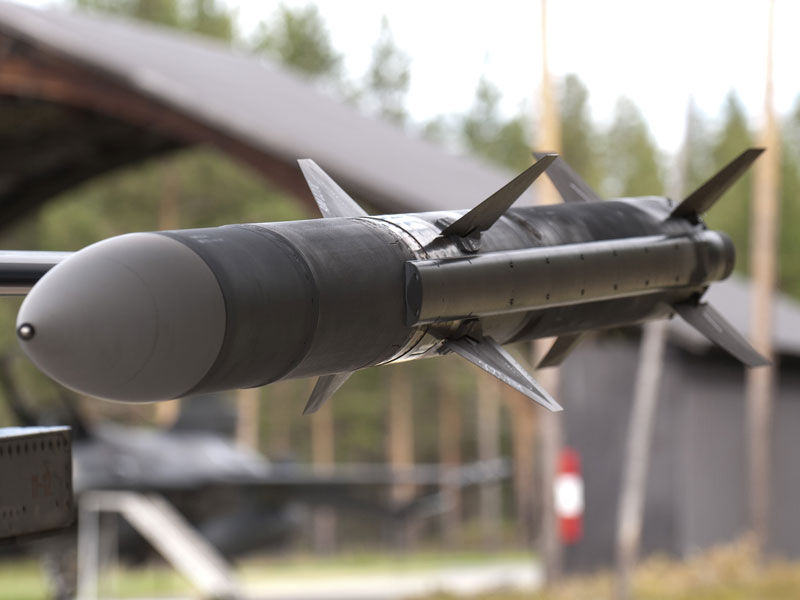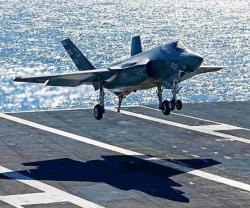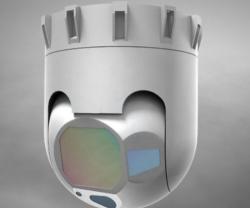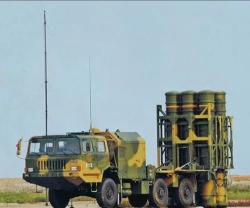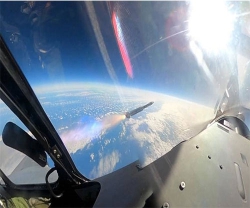The U.S. Air Force successfully completed testing and fielded the AIM-120D. The U.S. Navy achieved initial operational capability (IOC) on the weapon.
“AMRAAM is the most capable air-to-air weapon ever produced. The AIM-120D represents a significant improvement in air-to-air weapons capabilities and the technologies it brings to the battlefield give U.S. warfighters an unmatched advantage in the air-to-air arena,” said Ron Krebs , AMRAAM Program Director for Raytheon Missile Systems.
With the Air Force, the new AMRAAM was subjected to several scenarios designed to represent realistic combat conditions. AIM-120D demonstrated outstanding capability against challenging targets, and it performed superbly in all regimes of flight. Airborne testing verified that AIM-120D is ready for overseas deployment.
IOC follows extensive flight testing, where the Navy integrated and tested Raytheon's AMRAAM AIM-120D missile on the F/A-18 Hornet and the Super Hornet aircraft. The Navy plans to deploy with the D later this year.
The AIM-120D is the newest air-to-air weapon in the U.S. arsenal and has significant capability improvements, including increased range, GPS-aided navigation, two-way data link and improved weapons effectiveness.
AMRAAM is a combat-proven missile that demonstrates operational flexibility in both air-to-air and surface-launch scenarios and provides today's warfighter with enhanced operational capability, cost effectiveness and future growth options/solutions. Procured by 36 countries, the combat-proven AMRAAM has been integrated on the F-15, F-16, F/A-18, F-22, Typhoon, Gripen, Tornado, Harrier, F-4 and the Joint Strike Fighter aircraft. It is also the baseline missile for the NATO-approved National Advanced Surface-to-Air Missile System.

